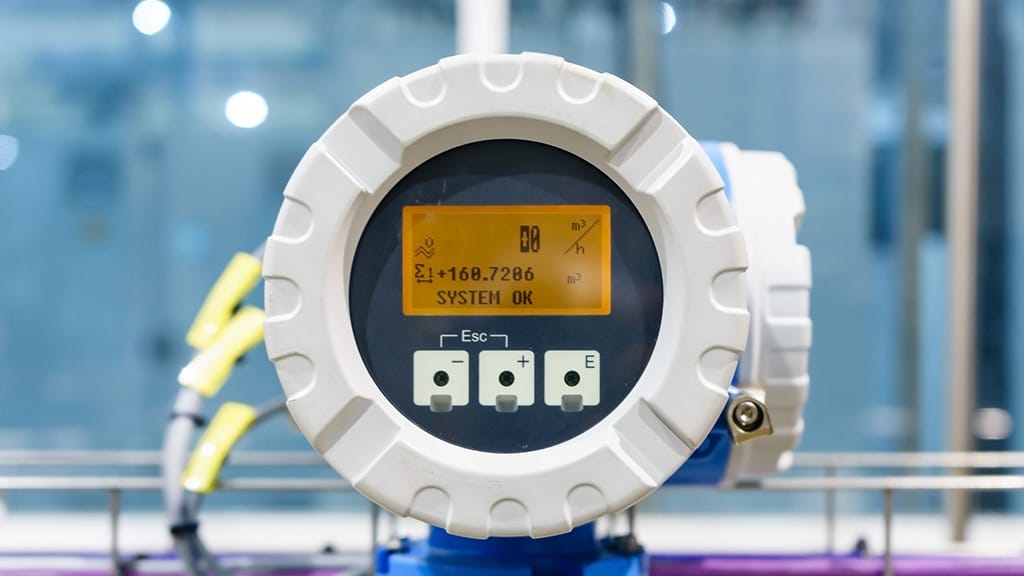Water stewardship - a key trend for industry and energy in 2023
While decarbonisation will remain high on the industrial agenda throughout 2023, it’s not the only sustainability issue demanding urgent attention. Water stewardship is another critical priority for industry leaders, and it requires extensive collaboration and innovation.
Water stewardship is another critical priority for industry leaders, and it requires extensive collaboration and innovation.
Desertification, flooding, and water scarcity are serious issues in many parts of the world, and the impact on industry is escalating. Last year’s factory closures in China when water shortages affected hydropower generation, and the problems Germany faced when the Rhine dried up hindering transportation of goods, indicate how widespread and severe the situation has become.
Important aspects of the chemicals, energy, and agritech industries are heavily dependent on water, so shortages are a significant concern. Its role in green hydrogen production means clean water is an essential raw material for energy transition too. Yet just 3% of the world’s water is classified as freshwater, and unease surrounding its use in commercial applications is increasing. Agriculture and industry/energy of global freshwater use respectively.
As part of their sustainability plans, many companies have set ambitious goals to reduce water use, but they don’t always have a focused plan to achieve them. Targets typically set by the C-suite are hard to operationalise. Plant managers often lack adequate technologies and tools to make material changes.
So, what can industry leaders do differently in 2023 to move the needle on water stewardship? There is a need to push innovation and drive the advancement of solutions - improving will be central to future progress – technologies such as IoT, AI, and advanced meters will be pivotal in monitoring water quality and enabling sustainable water use. The technology landscape may appear ripe with alternatives, but there are often challenges in spotting and assessing the right technologies that may have a significant impact.

Technologies such as IoT, AI, and advanced meters will be pivotal in monitoring water quality and enabling sustainable water use
Technologies for water stewardship
The water conservation journey often begins with the introduction of measurement technologies to track usage. Monitoring how much water is consumed and discharged provides a useful benchmark, but more advanced approaches are needed. Sagentia Innovation’s Industrial Sector Manager, Tom Kruczynski, says enhancing assets with smart and connected features can be beneficial: “Tracking water usage patterns and detecting failures is just the start. The real benefits for water stewardship come from combining data to create a holistic view of the entire network, then generating actionable insights.”
Agritech is already a forerunner in this space, using AI-powered irrigation as part of precision farming strategies. By capturing and analysing a wide range of data – related to soil, light, weather, and plant conditions – irrigation systems can be automated to ensure ‘just enough’ water is used at the appropriate times to optimise crop yield.
Strategies for water management
Sagentia Innovation’s Chief Technology Officer, Alun James, sees water quality as an important area where improvements can be made. This is about how water quality is defined for different applications, as well as the methods used to ensure necessary standards are met. “We’re going to see increased understanding and acceptance of water that is ‘clean enough’ for its intended purpose, whether that’s drinking or industrial use. It’s possible to deliver water that is good enough but not over-processed with the help of sensor-based checks to keep processing steps and chemicals to a minimum.”
Closed loop systems for water reuse are another attractive proposition for industry. Many processes require high-purity water, meaning it needs to be treated or filtered between cycles. The development of sustainable and cost-effective solutions to achieve this will be key. Optimising controlled water losses through evaporation and bleeding is another area that could deliver positive returns.
The chemical processing sector will benefit enormously from any new developments in this space. Finding ways to reuse or recycle the large quantities of water used in heating, cooling, and distillation processes could enable significant reductions in plants’ water footprints.
Material science company Dow has made the recycling of water in water-stressed communities a priority for its
‘world-leading operations performance’ 2025 sustainability goal. Impressive progress has been made at its Tarragona petrochemical complex in Spain where collaboration with local water companies has resulted in the plant’s successful reuse of local wastewater. Water used in nearby cities and businesses is treated and then fed through a pipeline for use in the plant’s cooling tower, reducing freshwater use by 22% and effluent discharge by 49%. Such collaborative approaches are likely to play a key role in water stewardship strategies for industry in 2023 and beyond.
Developing solutions that deliver
As the impacts of climate change intensify, action is needed to optimise water management, reducing industry’s reliance on and exploitation of this precious resource. Ambitious goals need to be backed up with practical strategies and appropriate levels of funding. Intelligent use of technology is just one part of the solution. Innovative strategies that change how, where, and when water is used are also required. There is no silver bullet but making a business case for investment in water stewardship is a good place to start.
At Sagentia Innovation, we have the scientific, industrial, and sustainability expertise to help clients focus their efforts and make meaningful progress on water stewardship. Find out more about our industrial, chemicals, and energy sector services here.